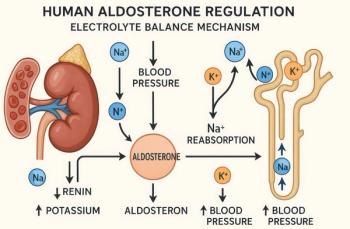
SCCM: Clevidipine Seems Safe and Effective in BP Control
ORLANDO -- A novel intravenous calcium channel blocker seems safe and at least as effective as one of the standard blood-pressure-lowering drug in cardiac surgery, a researcher said here.
ORLANDO, Feb. 20 -- An investigational intravenous calcium channel blocker seems safe and at least as effective as a standard blood-pressure-lowering drug in cardiac surgery, researchers said here.
In a randomized, open-label safety study, clevidipine performed as well as sodium nitroprusside in patients undergoing coronary artery bypass grafting or valve surgery, according to Peter Papadakos, M.D., of the University of Rochester (N.Y.).
And on some fronts -- mortality and blood pressure control -- the investigational drug outperformed the older medication, Dr. Papadakos told the Critical Care Congress of the Society for Critical Care Medicine.
If clevidipine passes further clinical hurdles -- phase III trials are under way -- the drug may form a useful addition to the medications available to physicians in the perioperative setting, he said.
Clevidipine is the first third-generation calcium channel blocker, Dr. Papadakos said. It has what he called an "ultrashort" clinically relevant half-life of about one minute and then is rapidly metabolized.
The effect on blood pressure is seen within one to two minutes, he said.
The ECLIPSE trial randomized 589 patients at 40 centers in the U.S. to get either sodium nitroprusside or clevidipine. Sodium nitroprusside was administered according to institutional practice; clevidipine was begun at 2 mg/kg and doubled every 90 seconds until blood pressure was lowered.
The primary endpoint was the difference in major clinical events -- death, myocardial infarction, stroke, and renal dysfunction 30 days after surgery. The secondary endpoint was blood pressure control during the first 24 hours after surgery.
The study showed no significant differences in the elements of the primary endpoint, except for mortality, Dr. Papadakos said, where 1.7% of clevidipine patients died, compared with 4.7 of those getting sodium nitroprusside.
The difference was statistically significant at P
Newsletter
Enhance your clinical practice with the Patient Care newsletter, offering the latest evidence-based guidelines, diagnostic insights, and treatment strategies for primary care physicians.



































































































































